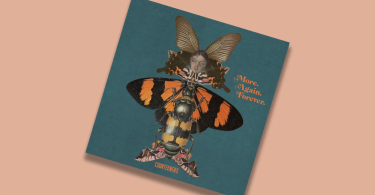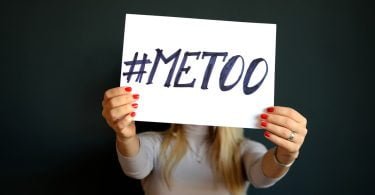Miley Cyrus’ transformation from doe eyed Disney sweetheart to ass popping pseudo-thug has not only propelled her to astronomic levels of fame but has also, unintentionally perhaps, placed her
Miley Cyrus’ transformation from doe eyed Disney sweetheart to ass popping pseudo-thug has not only propelled her to astronomic levels of fame but has also, unintentionally perhaps, placed her at the epicentre of worldwide debate over the issue of cultural appropriation.
I’ll start off by admitting that I do actually like Miley Cyrus. In an age where pop stars are indistinguishable from one another this in-your-face post Hannah Montana incarnation is a breath of fresh air. I’d also be lying if I said ‘Party In The USA’ hasn’t enjoyed a semi-permanent placing in the lower (higher) echelons of my ‘Most Played’ list on iTunes since 2009.
That said, I do take issue with the current manner in which she is regurgitating elements of another culture in order to orchestrate the shedding of the teen-queen image she’s been forced to endure.
New Grill New Me
Cyrus’ recent image overhaul has seen her assimilate several aspects of black & Hip-Hop culture into her music, style and behaviour. Her comeback single ‘We Can’t Stop’ (currently No.1 in the UK) boasts, amongst a plethora of come hither double entendres and drug references, a distinctly urban sound that’s light-years away from her previous teen-bop classics like ‘The Climb’.
The change definitely isn’t something Miley or her production team for that matter have tried to play down either. According to the songs writers when she met with them originally Cyrus claimed she wanted to re-establish herself with ‘something that just feels black’. Lyrically the song speaks about partying hard and chucking deuces at anyone who tells you to do otherwise but unlike other songs of that ilk labours on the joys of being ’bout that life’.
Nowadays the term ’bout that life’ has been popularised to mean brazen, fearless and ‘down with it’ but it originally stemmed exclusively from the African American gang culture and referred to the laws in Florida that gave 10 years for possession of, 20 for firing, and life imprisonment for killing someone with a concealed firearm. Those who were ’bout that life’ were willing to serve a life sentence for murdering someone.
Though I don’t think her usage of the term is intended to condone violence I do think it showcases an astonishing lack of social awareness as well as a blatant disregard for the history of the culture she is appropriating. It also perpetuates the idea that she is simply using the language to look cool and edgy.
Twerk
This is of course just one example of Miley’s foray into ‘ratchet’ culture. Many will be familiar with her now infamous ‘twerking’ video in which she practices a suggestive dance routine which was originally established into Hip-Hop culture through the New Orleans Bounce Music Scene. The video went viral and made Cyrus the face of a dance move which she didn’t invent and if this video by the official ‘twerk team’ is anything to go by isn’t actually that good at.
The Video
The music video for ‘We Can’t Stop’ which racked up record breaking views within its first 24 hours of release is also positively teaming with cultural appropriation. In the video Cyrus dons a number of accessories often associated with Hip-Hop culture such as a gold grill, chunky gold chains and the do-rags that iconic rapper Tupac Shakur is credited with popularising in the eighties.
She can also be seen throwing up gang signs and trying to look generally thugged out at various points as well. Are the images directly offensive? No. However they do speak volumes about what exactly Cyrus believes constitutes achieving something ‘that just feels black’.
Additionally Miley’s twerking skills are put to ample use as she butt bounces with a trio of black women in one scene. During this segment Cyrus appears notably in an all-white ensemble at the centre of the shot as her booty popping buddies linger in the fringes forming a backdrop that allows her to take centre stage. The women appear essentially as props. It’s Miley’s video so of course she is going to be portrayed as the main event but these scenes make it hard to shake the idea that she is anything other than a wealthy white woman ‘playing’ at being a minority for the sake of controversy.
The song is catchy and the video’s premise is playful but both persistently trivialise the subcultures that pertain to a group of people who in the past were disenfranchised, marginalised and discriminated against.
Nothing New
Is Miley Cyrus the root of the problem? Certainly not! Cultural appropriation isn’t an unfamiliar concept, especially in the music industry. From Gwen Stefani ‘accessorizing’ at promotional events by having a group of giggling Asian-American women – whom she playfully dubbed her ‘Harajuku Girls’ – follow her around in 2005 to Lady Gaga wearing a Burqa-style outfit when she attended Philip Treacy’s show at London Fashion Week in 2012 numerous prominent white musicians have been accused of adopting elements of other cultures and marketing them as their own.
Cyrus’ portrayal simply puts her in a long line of culture-vultures who came before her and her transition, though not unique in itself, does raise a number of questions concerning what she and society as a whole believe is an honest representation of ‘black culture’.
All this certainly isn’t an attempt on my behalf to bash cultural cross-pollination. The exchange of knowledge and ideas between different cultures is fantastic and allows us to enrich our experience of life as a whole.
However, I think when people start to cherry pick aspects of other cultures & change their meaning for the purpose of publicity it becomes manipulative and crass.
By all means “twerk” till your glutes are hard as rocks Miley, just don’t try and pass it off as something you came up with while you were having your grill fitted.
What do you think of Miley Cyrus? Have your say in the comments section below, on Facebook or on Twitter.








